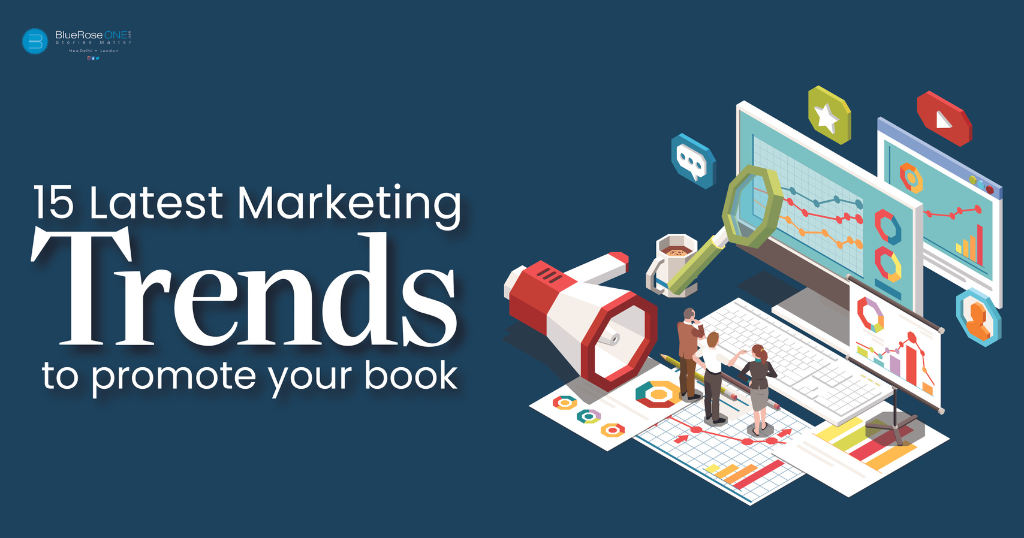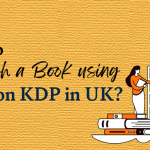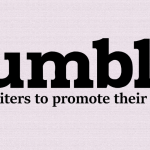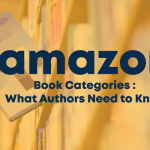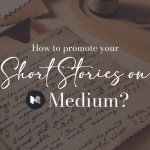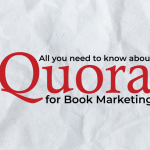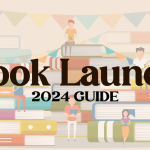So, you’ve poured your heart and soul into writing your book, and now it’s time to share it with the world. In the digital age, effective book marketing is essential to ensuring your literary masterpiece gets the attention it deserves. Whether you’re a seasoned author or a first-time writer, keeping up with the latest marketing trends is crucial.
Read: How to Publish Mystery Romance Novels: A Complete Fiction Genre Guide
In this blog post, we’ll explore 15 cutting-edge marketing trends to promote your book in 2023.
- Leverage the Power of Video Marketing
- Embrace Podcast Guest Appearances
- Interactive social media campaigns
- Collaborate with influencers
- Optimise for Voice Search
- Email marketing automation
- Audio versions and podcasts
- Data-Driven Marketing
- Virtual Book Tours
- AI-Powered Advertising
- Localised Marketing
- User-Generated Content
- Collaborative Marketing
- Blockchain and NFTs (Non-Fungible Tokens)
- Sustainability and Eco-Friendly Marketing
- Leverage the Power of Video Marketing:
Video marketing has evolved as a powerful tool for writers wishing to promote their works in today’s digital age. Videos are a fun and interactive way to communicate with your audience. For example, creating book trailers helps you visually express the core of your work, tempting potential readers. These little movies may capture the mood, scene, and personalities, creating an indelible impression.
Author interviews and live readings add a personal touch to the work, allowing readers to connect with the artist. The reader-author relationship may be strengthened by sharing insights into your writing process, inspirations, and obstacles. Platforms such as YouTube, TikTok, and Instagram Reels are great for displaying these films since they cater to a wide range of consumers and provide simple sharing options.
Visual content does more than just catch attention; it also has the potential to go viral, reaching a broader audience. Additionally, video content is more likely to be shared on social media, further extending your book’s reach. By leveraging video marketing, you can breathe life into your book’s promotion, making it more relatable and accessible to a wide range of readers. - Embrace Podcast Guest Appearances:
Podcasts have emerged as a digital media force, offering authors a unique opportunity to connect with a varied and interested audience. Appearing as a guest on relevant podcasts in your industry or genre may transform your book marketing.
Podcasts provide an intimate and conversational venue for discussing your work, sharing insights into the writing process, delving into the themes and characters, and even sharing personal tales. This style allows listeners to get to know you as an author on a more personal level, which fosters a sense of connection and trust.
When you partner with podcast hosts that have a loyal following in your field, you tap into an already established community of prospective readers.
Furthermore, podcast episodes are evergreen content, meaning they can continue to attract new listeners long after their initial release. This ongoing visibility can have a lasting impact on your book’s promotion efforts, making podcast guest appearances an excellent investment of your time and effort. - Interactive social media campaigns:
Social media has revolutionised the way authors engage with their readership, and interactive campaigns are a fantastic way to create buzz around your book. Hosting giveaways, quizzes, and interactive Q&A sessions related to your book not only makes the promotion process more exciting but also encourages active participation from your audience.
Giveaways, for example, can generate a lot of excitement and word-of-mouth marketing. By offering signed copies of your book, merchandise, or exclusive content as prizes, you incentivize your followers to share your posts and engage with your brand.
Quizzes related to your book’s themes, characters, or plot can be both fun and informative, allowing readers to test their knowledge and connect with your story on a deeper level. They also encourage sharing and tagging, increasing your content’s reach.
Interactive Q&A sessions provide a platform for direct communication with your readers. They can ask questions about your book, your writing journey, or even seek advice for aspiring writers. This personal interaction builds a sense of community and loyalty among your followers.
You may also like: Unlocking success: Bluerose publisher’s Best Amazon KDP Books
- Collaborate with influencers:
Influencer marketing has become a potent strategy for authors seeking to expand their books’ reach. Influencers are individuals with a significant and engaged following in a specific niche or genre. Collaborating with them can provide your book with a boost in visibility and credibility.
To implement this strategy effectively, start by identifying influencers whose interests align with your book’s genre or themes. Reach out to them for potential collaborations, which could include book reviews, shoutouts, or joint promotions. When influencers endorse your book, their dedicated followers are more likely to take notice and trust their recommendations. This can introduce your book to a new and enthusiastic audience that might not have discovered it otherwise.
Influencer marketing offers a win-win scenario, benefiting both authors and influencers. Authors gain access to a wider audience, while influencers can provide valuable content to their followers. Be sure to choose influencers whose values and interests align with your book to ensure a genuine and authentic partnership. - Optimise for Voice Search:
With the growing prevalence of smart speakers like Amazon Echo and Google Home, optimising your book’s online presence for voice search is becoming increasingly important. Voice search involves users speaking commands or questions to a device instead of typing them.
To make your book discoverable through voice search, incorporate conversational keywords and phrases into your book descriptions, website content, and marketing materials. Voice searches tend to be more natural and conversational, so your content should reflect this. Think about how people might verbally ask questions or seek information related to your book, and incorporate those phrases into your digital presence.
By optimising for voice search, you increase the chances of your book appearing in search results when users ask questions like, “Find books about [your book’s genre or topic].” This can help you capture a broader audience and stay ahead in the evolving landscape of online discovery. - Email marketing automation:
Email marketing remains a highly effective way to nurture your audience and maintain a direct line of communication with your readers. To enhance this strategy, segment your email list based on reader preferences, engagement levels, or demographics. Then, employ automation tools to send personalised recommendations, updates, and exclusive content to each segment.
Personalisation is the key to successful email marketing. Tailor your messages to each group’s interests and behaviour, such as sending book recommendations based on their previous purchases or providing sneak peeks into upcoming releases. Automation allows you to schedule and deliver these messages at the right times, maximising their impact.
Additionally, use email marketing to build a sense of community among your readers. Encourage feedback, host virtual book clubs, or share behind-the-scenes insights into your writing process. This ongoing engagement can foster loyalty and turn readers into dedicated fans who eagerly anticipate your future works. - Audio versions and podcasts:
In today’s fast-paced world, audio content has gained significant popularity. Consider creating an audiobook version of your book, as it opens up your story to a broader audience, including those who prefer to listen on the go. Audiobooks are especially popular with commuters and busy individuals.
Moreover, starting a podcast related to your book’s themes can be a brilliant promotional strategy. It allows you to explore the topics, characters, and ideas from your book in depth while engaging with listeners who share an interest in those subjects. Podcasts can attract a different set of listeners who may not have discovered your book through traditional marketing channels.
Podcasts also offer an ongoing platform for connecting with your audience, building a community, and providing valuable content related to your book. By combining audio versions of your work with podcasting, you tap into the expanding world of audio content consumption, enhancing your book’s visibility and appeal to a diverse audience. - Data-Driven Marketing:
Data-driven marketing involves using analytics and insights from various sources to make informed decisions about your book promotion strategies. By leveraging data, you gain a deeper understanding of your audience, their preferences, and their behavior. This knowledge allows you to identify which marketing strategies are most effective and refine your approach accordingly.
You can collect data through website analytics, social media metrics, email campaign performance, and sales figures. By analysing this information, you can discover which marketing channels are driving the most traffic and conversions, what type of content resonates with your audience, and when the best times to engage with your readers are.
Data-driven decisions enable you to allocate your resources more efficiently, focusing on the strategies that yield the highest return on investment. For example, if you find that your social media posts generate more engagement than your email campaigns, you can adjust your marketing plan to prioritise social media efforts. This targeted approach can significantly improve your book’s promotion by maximising its impact on the right audience. - Virtual Book Tours:
In-person book tours have faced challenges, especially in light of global events. However, virtual book tours have risen in popularity as a viable alternative. This approach involves collaborating with bloggers, booktubers (YouTube creators who focus on books), and social media influencers to reach a global audience without leaving your home.
Virtual book tours typically consist of a series of online events, such as interviews, author Q&A sessions, and book reviews, hosted by these online influencers. These events provide opportunities to introduce your book to their dedicated and engaged followers. The advantage is that you can reach a wide and diverse audience while minimising travel expenses and logistical challenges.
To execute a successful virtual book tour, research and connect with influencers who align with your book’s genre or target audience. Coordinate with them to schedule and promote the virtual tour events. The key is to make each event engaging and interactive to captivate the online audience and generate interest in your book. - AI-Powered Advertising:
Artificial intelligence (AI) has revolutionised advertising by allowing for highly targeted and efficient campaigns. AI tools can analyse vast amounts of data to identify potential readers who are most likely to be interested in your book. These tools consider factors like demographics, online behaviour, and interests to create custom audience segments.
AI can also optimise your ad campaigns in real-time by adjusting the placement, timing, and messaging to maximise conversions. For example, if AI algorithms detect that certain ads perform better on Facebook than on Instagram, they can allocate more budget to Facebook advertising.
By harnessing AI-powered advertising, you can reach your ideal readers more effectively, reduce advertising costs, and improve the overall return on investment (ROI) of your marketing efforts. It allows you to put your book in front of the right people at the right time, increasing the chances of converting them into readers and fans.
You may also like: Online Books vs. Traditional Books | Pros and Cons
- Localised Marketing:
Localised marketing involves tailoring your promotional efforts to specific geographical areas or communities that are relevant to your book’s themes. This strategy recognises that different regions and cultural groups may have unique interests and preferences.
To implement localised marketing, conduct research to identify regions where your book’s content resonates strongly. You can then create region-specific marketing campaigns, content, and messaging that speak directly to those audiences. This could include localised ads, social media content, and even translations of your book into different languages.
By connecting with local communities and addressing their specific interests and needs, you can build a more dedicated and passionate readership. Localised marketing can also help you stand out in a crowded market by focusing your efforts where they are most likely to yield positive results. - User-Generated Content:
User-generated content (UGC) involves encouraging your readers to create and share content related to your book. This content can include artwork, short stories, reviews, fan fiction, and more. Running contests or challenges where readers can submit their creations related to your book can be a powerful way to engage your audience.
When readers participate in UGC campaigns, they become active contributors to your book’s promotion. Sharing and celebrating their contributions on your social media platforms and website not only recognises their efforts but also strengthens the sense of community around your work.
UGC not only boosts engagement but also extends your book’s reach as readers share their creations with their own networks. It can be particularly effective in building a passionate fan base that is emotionally invested in your book’s success. Encouraging UGC is a creative and interactive approach to book promotion that fosters a sense of belonging and excitement among your readers. - Collaborative Marketing:
Collaborative marketing involves partnering with fellow authors to promote each other’s work, leveraging each other’s audiences and resources. This approach can be highly effective in expanding your book’s reach and building a supportive community within your niche.
One common method of collaborative marketing is co-authoring articles or books. By co-writing with another author, you tap into their expertise and readership, exposing your work to a new set of potential readers. Hosting joint events, such as webinars, virtual book clubs, or author panel discussions, can also attract a broader audience and create a sense of excitement around your books.
Recommending each other’s books to your respective audiences is a simple yet powerful way to cross-promote. You can do this through social media shoutouts, email newsletters, or even by writing forewords or endorsements for each other’s books. This mutual support not only boosts visibility but also fosters a sense of camaraderie among authors and readers alike.
Collaborative marketing allows you to pool resources, share ideas, and tap into the collective power of authors who share your interests. It’s a win-win strategy that can lead to increased book sales and a stronger presence within your literary community. - Blockchain and NFTs (Non-Fungible Tokens):
Exploring blockchain technology and NFTs can be a creative way to engage tech-savvy readers and create unique digital collectibles related to your book. NFTs are digital assets that are unique, verifiable, and often tied to blockchain technology, making them ideal for creating exclusive book-related content.
Authors can consider minting NFTs that represent limited edition digital versions of their books, book cover art, or even special author notes and annotations. These NFTs can be sold to collectors and fans, creating a new revenue stream and a sense of ownership for buyers.
Additionally, hosting NFT-based contests or giveaways can generate buzz around your book. For instance, you can offer NFTs as prizes for readers who participate in promotional activities or engage with your book in creative ways.
Embracing blockchain and NFTs can position you as an innovative author and open up opportunities for engagement with readers who are interested in emerging technologies. However, it’s essential to research and understand the technology thoroughly before diving into this unique approach to book promotion.
You may also like: Book Review: The spice of life a Book by Reena Chakraborty
- Sustainability and Eco-Friendly Marketing:
As environmental concerns continue to grow, incorporating sustainability and eco-friendly marketing practices into your book promotion can resonate with readers who prioritise environmental responsibility.
One eco-conscious approach is to print books on demand. Traditional publishing often involves large print runs, which can result in excess copies going unsold and ultimately becoming waste. Printing books on demand means producing copies as they are ordered, reducing waste and environmental impact.
Promoting your book as eco-conscious and highlighting sustainable practices in your publishing process can attract readers who are passionate about environmental causes. Consider using recycled or sustainably sourced materials for physical copies and promoting digital versions to reduce paper consumption.
You can also align with eco-friendly organisations or causes relevant to your book’s themes and donate a portion of your book sales to support these initiatives. This not only showcases your commitment to sustainability but also provides an additional incentive for readers to engage with your work.
In today’s continuously changing field of book marketing, writers must adapt and experiment with new tactics to effectively promote their work. The strategies mentioned in this blog demonstrate the ever-expanding toolkit that authors have in the digital era.
In this day and age of fast change, writers who embrace these different tactics may increase the visibility of their work, interact with their audience on a deeper level, and stand out in a competitive industry. Authors may take their literary masterpieces to new heights of success by adjusting to the changing scene and harnessing these novel strategies.
Read: List of 10 Best Self-Published Books on Amazon in 2023.
To conclude this blog, I’d say that the world of book marketing is quickly expanding, and staying ahead of the curve will be critical for writers in 2024. By embracing these 15 marketing trends, you can effectively promote your book, connect with your target audience, and ensure that your literary creation shines in the competitive world of publishing.
Happy marketing!

